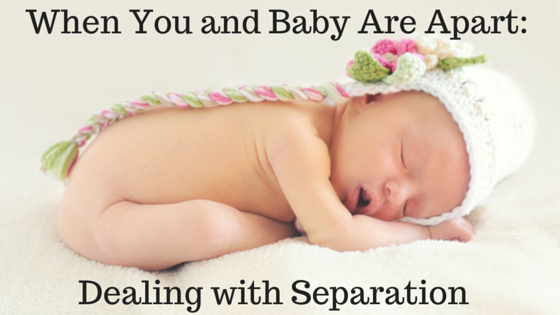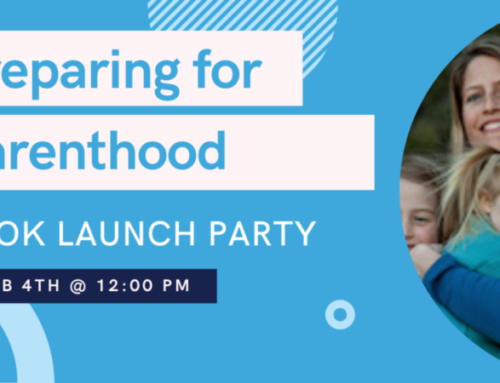You have to go. It’s okay to go.
Your baby will be fine.
Of course your baby will be fine.
Still, your heart might race a little imagining a meal, drinks, and a long conversation away from your little one.
The thought of having to return to work, or leaving for an overnight trip might just feel wrong.
And don’t be surprised if a thread of worry (and a little bit of panic) weaves its way through your mind when you think about walking out your door without your baby. It’s pretty common.
The truth is, dealing with separation may be harder on you than on your baby.
You’ll probably feel nervous, guilty, stressed, or tempted to call the whole thing off.
Separation can be tough on your emotions.
Here’s how to prepare:
Dealing with separation is easier if you plan your departure well.
It doesn’t matter why you have to leave your little one behind; it will feel strange leaving your parental responsibility to someone else after weeks or months of vigilance. A bit of prep work can make your separation as anxiety-free as possible.
- Consider a few trial runs before the big trip. For example, try leaving your little one with your partner, a family member, or the intended caregiver for an hour or two several times (perhaps with you just “leaving” to another room in your home) in the weeks leading up to your absence. You and your baby can establish a routine of separation and reunion that helps you both adjust.
- Testing the caregiver first will also help keep your mind free of concern about his or her child care capabilities.
Dealing with separation is less stressful if your caregiver is set up for success.
You’ll feel a lot more confident about separating from your child, and actually staying away for the predetermined time, if you know for sure that your baby is with a caregiver who is fully prepared to deal with childcare issues in ways that meet your parental standards. Reduce worry in a few key ways:
- Have the caregiver come to your home, if possible. This way, your baby will sleep in his or her own bed, navigate a baby-proof environment, and have access to the amenities that will be less disruptive to his schedule and comfort.
- Prepare and post important information – emergency numbers, contact information, and location details that are vital for your peace of mind.
- Set an early arrival. Bring your caregiver in well before (a half hour to hour before) you leave. Talk to your sitter about your child’s schedule and comfort techniques. Cover as much as you need to. When it’s time to go, keep farewells short and sweet.
- If you need to drop your baby off at day care, try to incorporate a couple of trial runs that allow you to witness how the caregivers interact with your child, and the other children as well. You will have prepared all of your emergency information for the caregivers, and will still want to arrive ahead of time to allow you to witness your baby adjusting to his or her surroundings.
Dealing with separation is more manageable if you confront negative thinking.
Replace the worst-case scenarios winding their way through your head with thoughts based on the reality that you are doing all that you can to be sure your child is protected.
- Honor your feelings. It’s okay to feel what you feel. Suddenly being without your baby is bound to inspire a myriad of emotions. It does you no good to bury them or be dishonest with yourself. The goal is to simply deal with them appropriately and allow yourself time to do what you need to without feeling overwhelmed or stifled by your feelings.
- Remain present. You and your child will both benefit from a bit of independence. Enjoy the moment. Mindfully soak in your time away. It’s good for you to live your life fully aware. You will likely feel rejuvenated and refreshed when you return home.
- Challenge negative thoughts. Don’t allow anxious thoughts and rumination to get the best of you. Your child is in good hands. You have an emergency plan in place. One call to check in is enough.
If you are continuing to struggle with anxiety or worry about separating from your baby, consider contacting a skilled therapist to work through your feelings.
You can go. It’s okay. Your baby will be fine.
For more information on Counseling for Parenting Young Children click here.







Leave A Comment